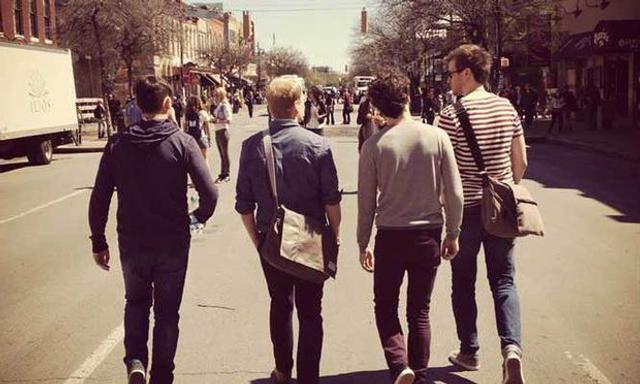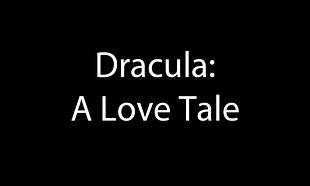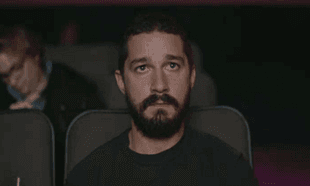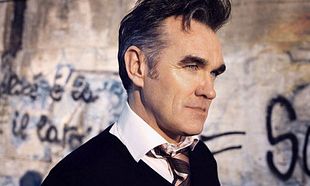Almost ten years into their career, Delorentos have follwed up their Choice prize- winning album Little Sparks with Night Becomes Light, an album that might just be their best yet. Kieran McGuinness and Rónán Yourell sat down with us and talked about the writing and recording of the record, sharing the same producer as Hozier and what fans can expect on their upcoming tour.
Words: Phil Cummins
Delorentos are almost ten years on the trot and now on the eve of releasing album number four. Does the process of writing and recording a record get any easier with that level of experience or is it always daunting?
Kieran McGuinness: We have our own way of doing things: we’re four songwriters who are always supporting each other, in competition with each other, which are both good and things
For our first record, it didn’t really feel that anyone was dying to hear our record; during our second record, we kinda broke up so it was a bit of a mess; by the time we made our third record, we came back and we didn’t feel like anyone was mad to hear it again.
So it does feel like a different process for us every time. On this album, we didn’t want to do the thing where you write a song in a room, play it for three months and record it; this time around, we had a bigger pool of songs and the four of us have got a bit more confident in our writing. You begin to trust each other more. When I bring in a song to the other guys, I feel that I can trust them.
Rónán Yourell: Every time does feel different. Over the years, I think you just trust and believe in each other more. If someone has a vision for a song, it’s about facilitating that vision, enabling, but also trying different things, too. Neil on this record, for example, brought a lot of technology to this record: a lot of iPad apps and the like, putting them through pedals, exploring different sounds...it’s weird and wonderful every time and, like anything else, there’s good days and bad and there’s times where you wonder “are we getting anywhere, here?” and then, suddenly, there’s a five minute breakthrough that opens up a song and takes in a different direction.
Kieran McGuinness: We were never the type of band that practices in Temple Bar Music Centre, goes out for a smoke and talks to all the other bands and and goes “How are you? Did you hear such and such got signed…”. We’ve never been part of that kind of thing; we’ve always felt that we were out there on our own. There’s a song on the record called ‘Everybody Else Gets Wet’, which I wrote on my phone. The lead- in to the song starts off a bit...weird. And I had to convince the other guys: “Trust me: this will be good”. I guess that was the way it worked for all the songs on the record. It takes a lot of trust, work and passion where you have songs ready. It always feel like the first time.
Producer Rob Kirwan has worked with bands who have quite a robust, dynamic sound, such as U2 and Depeche Mode, but also acts whose sound is more grounded and stripped down, such as Hozier, PJ Harvey and Ray LaMontagne. Was it difficult for him to centre four songwriters, brimming with ideas and how effective was he in bringing you all into a middle ground?
Rónán Yourell: Rob worked with us on Little Sparks, so what was great about working with him this time around is that we had an existing relationship with him and we’d worked up a degree of trust in working with him. We had a much larger pool of songs, this time around, so Rob was great at sifting through things, putting a shape on the record. Listening back, I definitely think that this record has much more variety than any record we’ve done, but it also feels cohesive and it feels that it connects up.
Kieran McGuinness: We do our own, internal, sifting through songs, but you still end up with a pile. One of the songs on the record never went beyond the demo that Ro had on his phone. Rob chose what he felt were the best songs. He then deconstructed those songs, with us, to make them the very best versions of those songs. On the last record we didn’t know what to expect, but on this record there was more internal discipline.
This songs definitely has much more of all of us together than any other record before; if a song wasn’t connecting with someone during the sessions, it didn’t go beyond the practice space. I had songs that I thought were strong, but they didn’t get off the ground with the guys because, maybe, they were too personal; too direct. When we settled on a final bank of songs, it was a strange thing, because on the first two albums, we had what ever songs came to us and said “these are our best 15 songs” and produced them to the nth degree. It was strange to have cut a record from such a large pool of songs
Rónán Yourell: The first couple weeks were really great fun: going into Grouse Lodge with dozens of keyboards and all sorts and experimenting with sounds. Rob has a great sensibility with feel that brings about the best in us. When you have four strong characters who can be quite forceful in their opinions, you can get in each other’s way. Rob gets great results by not making it results driven. And demystifies a lot of recording techniques. It’s all about feel and getting away from listening to a guitar part for two hours and trying it a thousand different ways with overdrive pedals.
Kieran McGuinness: A lot of the sounds from the album were live takes and there were a lot of rough sounds that just sounded great that made me wonder how we’ll do it all, live, ahead of our tour. I remember Rónán was paying guitar and hit his elbow off his guitar and it made some kind of weird, almost wah- like noise and it sounded great; so it’s a live take that is as much a part of the song as anything.
Rónán Yourell: Obviously, we really hope that we do go out and play great shows, but on record, perfection has never been what this band has always been about: it should be real and it should be about capturing something that feels real, imperfect, raw.
You mentioned Hozier: Rob produced Hozier’s record at the same time as ours and on, consecutive days, he was going in and out. He’s a really genuine guy; very gentle and I can see why it works well between Hozier and Rob: they’re both quite chilled, relaxed guys.
With the melting pot of ideas that you guys have and the range in songs and sounds that came out of the sessions, how did you sequence those songs into a cohesive record?
Kieran McGuinness: On every other record, it was a case of “These 12 songs worked, these didn’t”. We got to the position when we were sequencing and we chose from 15. Every time we added or removed a track the tone of the entire record felt really different. Take out two singles, put in two very slow songs, it’s a different record.
We get on really well; we’re like brothers. Sequencing, though, is the kind of stuff that we fight about and that causes some degree of tension. But we can league the arguments in the practice space. Right to the end, there were heated discussions about what went on the record and what didn’t. Eventually, we got it right and we separated ourselves from it. We came out of the fog of recording with perspective and, now, we’re into again because we’re rehearsing for the tour. When we’re rehearsing, everything connects more: our vocals connect more, our playing...it feels right. You hear the words more.
Rónán Yourell: We hadn’t lived with the songs as long as on the first record, so we still don’t know how some of the songs will work live, which is really exciting.
Kieran McGuinness: Some of the songs could take on a different life, live, because we still don’t know how it’s all going to sound, live. There’s a couple of songs, ‘Too Late, for example, that have a very defined, Motown feel, which you really have to work at achieving. It has to be groove based and you can’t be afraid to reach for that feel. The melodies, to us, feel like new melodies and new songs in the world. We work so hard at putting what it is we feel down on record, so hopeful when we go out and play, people who’ve heard the record will connect to that feel as much as we have.
When you get to this point, it is scary: everything up until this point is quite inward. You’re focused on the songs, the songwriting, everything that you’re all bringing to it. You then go out in the world and you have to relate all of it back to an audience. The focus goes outwards. In a band, there’s always skills that go on. But standing on a stage, delivering those songs to an audience...that’s where you find out when it works, or when it doesn’t.
Delorentos’s fourth album, Night Becomes Light, is out now on Universal Music. They kick off their tour in support of the album on 24th October at Cyprus Avenue: get tickets here.









































































